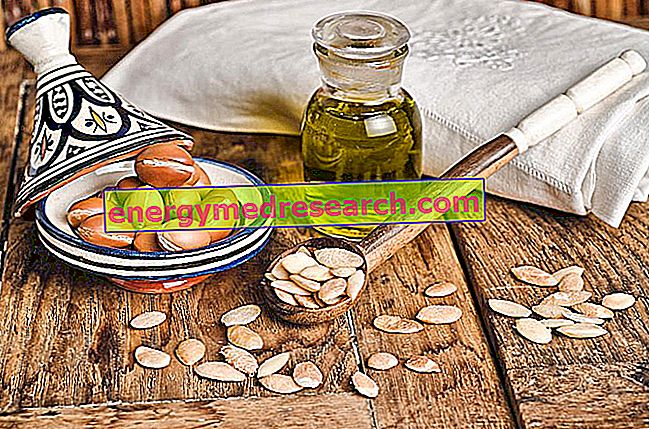Proteins are macronutrients which, if introduced in the right quantities, are absolutely not fattening.
Proteins have an extremely broad and multifaceted nutritional value, therefore, their dietary appraisal and application is frequently the subject of debate among food professionals.
Proteins are polymers (polypeptides) of amino acids, quaternary molecules (Carbon [C] - Hydrogen [H] - Oxygen [O] - Nitrogen [N]) containing a carbon skeleton bound to a carboxylic group (-COOH), to an amino (-NH2) and a radical (-R) that distinguishes them.

Amino acids can be classified in different ways, for example based on their essentiality; an amino acid is defined as essential if the body is unable to synthesize it. The quantity and number of essential amino acids inside a peptide or a protein determine its biological value, even improperly called protein "quality".
The metabolic functions of proteins are:
- Plastic and structural (myofibrils, collagen, elastin, etc.)
- Bio-regulatory (hormones and neurotransmitters)
- Catalytic (enzymes)
- Immune (immunoglobulins, coagulation factors, etc.)
- Carrier (albumin, hemoglobin etc.)
- Membrane and receptor channel
- Energy - 4kcal / g
Compared to carbohydrates and lipids, proteins require a greater digestive and metabolic commitment, and a consequent Dynamic action higher specification; this is the fundamental principle on which the high-protein slimming regimes are based. However, if it is true that the right amount of protein does not make you fat, it is equally true that an excessive intake of protein compared to other macronutrients is not advisable. In this case, the organism would be induced to use large quantities of amino acids for neo-synthesize glucose and would find itself having to convert all the nitrogenous groups into urea and then expel them with urine; furthermore, high-protein diets with low glucose content are often ketogenic. Ketones are acidic molecules that, if produced in excess, reduce blood pH, causing serious symptoms and disorders. Moreover, ketones have a high osmotic power and during filtration, to be expelled with urine, they need large amounts of water; this phenomenon can lead to dehydration. In short, the excessive use of amino acids for neo-glucogenetic purposes proportionally increases the hepatic and renal load. It is also worth mentioning some recent studies that directly correlate diets high in animal protein content with the worsening of the metabolic balance of calcium [Ca]. In conclusion, food therapies based on neoglucogenesis facilitate weight loss but, in addition to reducing fat:
- they determine a greater commitment of the liver and kidneys
- lower blood pH
- they promote dehydration
- they degrade the muscular and hepatic reserves of glycogen
- negatively affect calcium metabolism, increasing urinary excretion (however, thanks to the increased intestinal absorption of the mineral and the stimulus on the synthesis of osteo-anabolic hormones, high-protein diets do not seem to increase the risk of osteoporosis)
In the event that the protein surplus is not only a percentage (normocaloric), but also a quantitative one (hypercaloric), a conversion of the excess amino acids into deposited fatty acids would occur. Ultimately, if the dietary protein intake exceeds the metabolic requirement resulting in an excess of calories, an increase in the adipose deposit occurs. In such a high-calorie environment, excess protein is therefore fattening.
Some technicians, but above all many laymen, attribute to the dietary proteins miraculous characteristics; one of the most recent statements concerns the "improvement of muscular trophism" and "optimization of body composition" regardless of the level of physical activity. Personally, I believe that the key to interpreting the results of certain experiments is a little different.
First of all, a question should arise spontaneously:
If hyper-protein diets have a positive effect on body composition and on the increase in muscular trophism, would it be enough for athletes who train intensely to get this kind of results to undertake a hyper-protein diet? I do not believe.
Rather, it is very likely that:
Protein MALNUTRITION (therefore lacking in essential amino acids) negatively affects trophism of the musculature ESPECIALLY in subjects who have a low or almost zero level of physical activity (LAF). In this case, the increase in the food protein portion may result in an improvement in muscular trophism, and therefore in body composition.
Protein malnutrition is widespread in the elderly and especially among geriatric patients who are not totally self-sufficient. Often depressive symptoms, senile dementia and economic difficulties contribute to worsen eating habits; in many cases, the elderly eat monotonously and prefer foods that are easy to prepare, such as broth soup. In the long term, a similar diet determines a protein deficiency that reflects on the muscle depletion, worsening the body composition. In these cases, the increase of the protein food intake would undoubtedly improve the muscular trophism of the subjects, but the same concept is not applicable to a healthy and healthy person.
Proteins do not make you fat or lose weight, they are essential nutrients for human nutrition that must be introduced in the right quantities.



